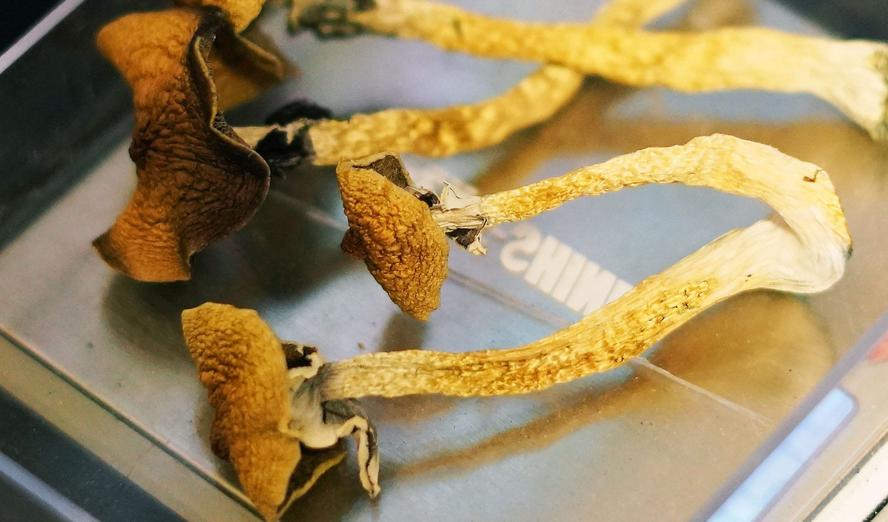As mental health treatments evolve and public attitudes shift, psychedelic policy in the United States is rapidly changing. In 2025, several states are moving beyond decriminalization and toward regulated access to psilocybin—the active compound in magic mushrooms—and other psychedelics. From clinical therapy models to voter-backed ballot initiatives, the landscape is quickly diversifying. Here’s an overview of the most important developments in psychedelic policy this year.

Oregon: The First Legal Framework in Action
Oregon made history by passing Measure 109 in 2020, legalizing the supervised therapeutic use of psilocybin. In 2023, the state began licensing service centers, facilitators, and manufacturers. By mid-2025, over 10 licensed service centers are now operational across the state, including Epic Healing Eugene—the first to open its doors.
Clients undergo a preparation session before being administered psilocybin in a controlled setting, followed by integration therapy. Though the model does not allow for take-home use, Oregon’s system is being closely watched as a template for other states.
Colorado: Legal Framework Rolling Out
In late 2022, Colorado voters passed Proposition 122, decriminalizing personal use, possession, and growing of certain natural psychedelics including psilocybin, DMT, mescaline (non-peyote), and ibogaine. By March 2025, the state began issuing licenses to facilitators and healing centers for regulated, adult-use psychedelic therapy.
Unlike Oregon, Colorado’s Natural Medicine program allows for group ceremonies and indigenous-led healing practices. The state has also emphasized equity and access, ensuring that small, community-based providers can enter the legal market.
New Mexico: A Medical Psilocybin Law
In a major shift, New Mexico passed the Medical Psilocybin Act in early 2025. This law allows psychiatrists and mental health professionals to administer psilocybin in a therapeutic setting to patients with treatment-resistant conditions such as PTSD, anxiety, and depression.
This legislation marks a departure from Oregon’s wellness model by integrating psychedelic therapy into the conventional medical system. The law includes provisions for insurance coverage and oversight by the state’s Department of Health.
California: Renewed Push for Legalization
California has long been at the forefront of drug policy reform, but past efforts to legalize or decriminalize psychedelics have stalled. In 2025, the movement has regained momentum with a new bill—SB 519 (reintroduced and revised)—gaining support in the state legislature.
The updated version proposes the decriminalization of personal use and possession of psilocybin, MDMA, LSD, and mescaline for adults. It also lays the groundwork for a state-sanctioned therapeutic access program, which would be designed in partnership with the University of California system and medical professionals.
If passed later this year, California could become the largest state to decriminalize and regulate psychedelic substances.
Washington, D.C. and Local Movements
While federal reform remains slow, local initiatives continue to drive change. In Washington, D.C., magic mushrooms and other entheogens were decriminalized through Initiative 81 in 2020. Although this didn’t legalize psychedelics, it made them the city’s lowest law enforcement priority.
Other cities moving toward reform in 2025 include:
-
Detroit, MI – Decriminalization now expanding into county-level discussions.
-
Seattle, WA – Ongoing funding for psychedelic training programs for therapists.
-
Berkeley, CA – Considering a licensed psychedelic therapy pilot program.
Federal Status: Still Schedule I, But Signs of Change
Despite state-level momentum, psilocybin remains a Schedule I substance under federal law, alongside drugs like heroin and LSD. However, the Food and Drug Administration (FDA) has designated psilocybin as a “Breakthrough Therapy” for depression, allowing for fast-tracked research.
In 2025, several Phase 3 clinical trials are ongoing, and the FDA is expected to consider approving psychedelic-assisted therapy for major depression as early as 2026. The Multidisciplinary Association for Psychedelic Studies (MAPS) and Usona Institute are leading many of these efforts.
Public Opinion Is Shifting
Support for psychedelic legalization is rising steadily. A 2025 Pew Research survey shows that 61% of Americans now support allowing psilocybin therapy for mental health conditions under medical supervision. Younger demographics—especially those aged 18–34—are the most supportive.
This growing acceptance is also reflected in the expansion of psilocybin training programs at academic institutions and the emergence of nonprofit psychedelic therapy clinics across the country.
What Comes Next?
As 2025 continues, additional states such as Massachusetts, Vermont, and Washington are exploring legislation or ballot initiatives for psychedelic reform. Most are looking closely at Oregon and Colorado’s models to craft policies that balance access, safety, and regulation.
Meanwhile, healthcare providers, academic researchers, and advocacy groups are laying the groundwork for a future where psychedelic therapy could be as normalized as other forms of mental health treatment.
Final Thoughts
Psychedelic policy in the U.S. is no longer a fringe issue—it’s a rapidly evolving frontier in medicine, law, and culture. As more states move toward legalization or medical access, the need for evidence-based education and responsible practices is more important than ever.